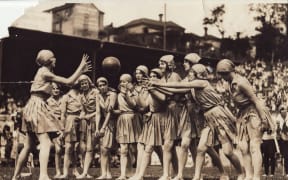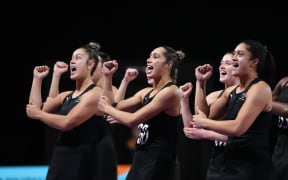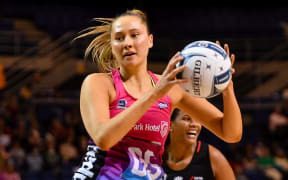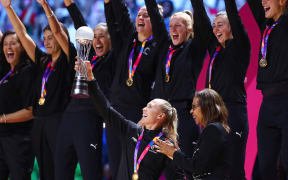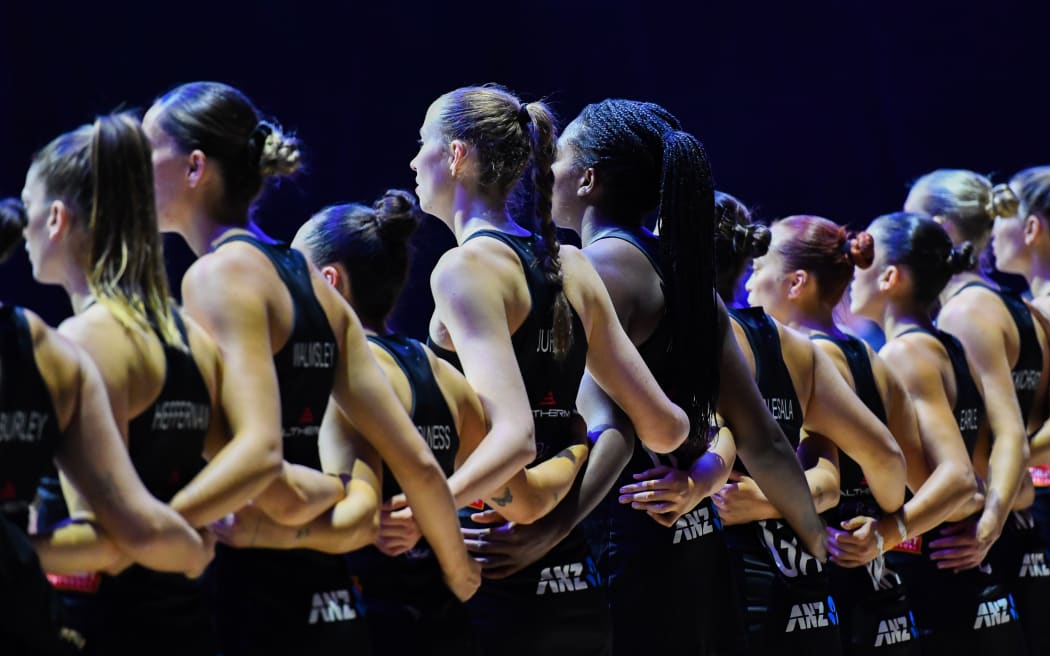
National anthem before Silver Ferns v Uganda, Netball Nations Cup match in Leeds, England 28 January 2024. Photo: www.photosport.nz
Netball used to be the envy of every other women's sport in New Zealand.
In Part II of a special report, Bridget Tunnicliffe looks at the sport's new battleground.
In the lead-up to the launch of the trans-Tasman ANZ Championship in 2008, an article ambitiously tipped Silver Fern star Maria Tutaia could become the first netballer to earn a seven-figure sum as the sport headed towards what was hoped a fully professional era.
Today, the highest-earning Silver Fern can earn around $135,000.
By the time New Zealand's best female cricketer Amelia Kerr gets paid to play in leagues around the world, including the lucrative WPL in India, she's pulling in half a million dollars a year.
While it is far less than New Zealand's top male cricketers, the gains that female cricketers have made have been extraordinary, given that 10 years ago the most a White Fern could earn in a year was around $25,000.
For some time cricket has been one of the wealthier sports on the planet. The difference now is that the sport set up by and for men is investing a lot more into the women's game.
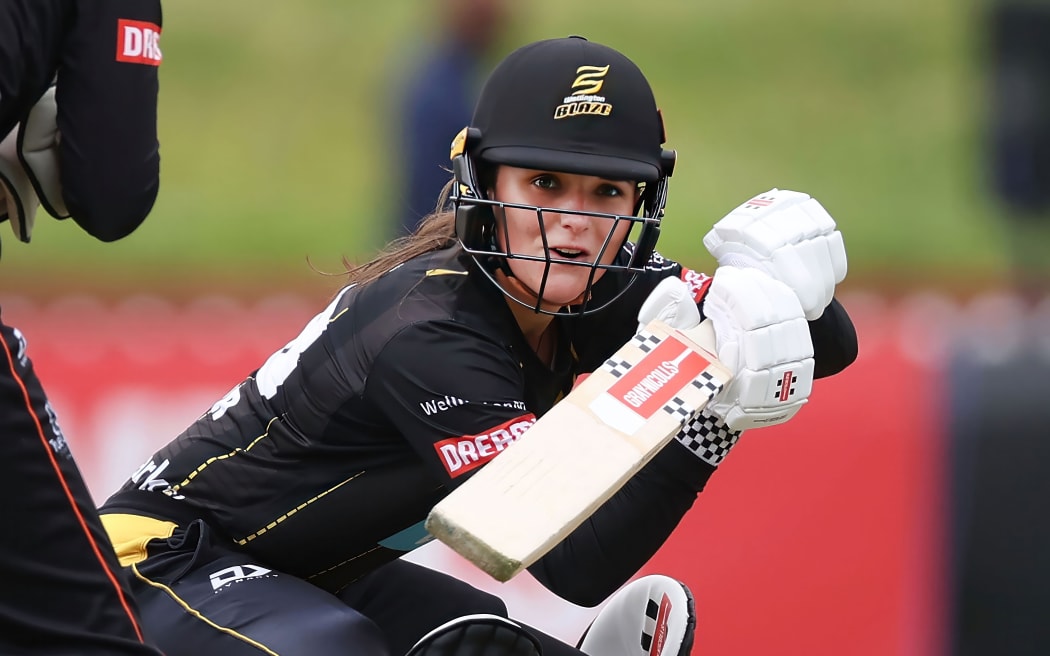
Amelia Kerr Photo: Marty Melville/www.photosport.co.nz
It's a trend that has been sounding off alarm bells across the Tasman too as netball tries to compete with female codes that are suddenly being supported by traditional male sports that see untapped commercial potential.
Former Australian captain Liz Ellis has warned that netball has to be careful it doesn't become a pipeline of talent for other sports to pick off.
Donna Wilkins represented New Zealand in netball and basketball for about a decade from the late 1990s.
In 2022 New Zealand's first professional women's basketball league Tauihi, was launched and players were able to get paid domestically for the first time.
Basketball can offer opportunities for the Olympics and college scholarships in America, which netball could not.
Wilkins went to two Olympic Games for basketball and said it was a massive pull.
"It's an experience that not many people get and knowing that you can qualify and go to the Olympics is pretty cool. With basketball it's so global, there's so many countries that play the game," Wilkins said.
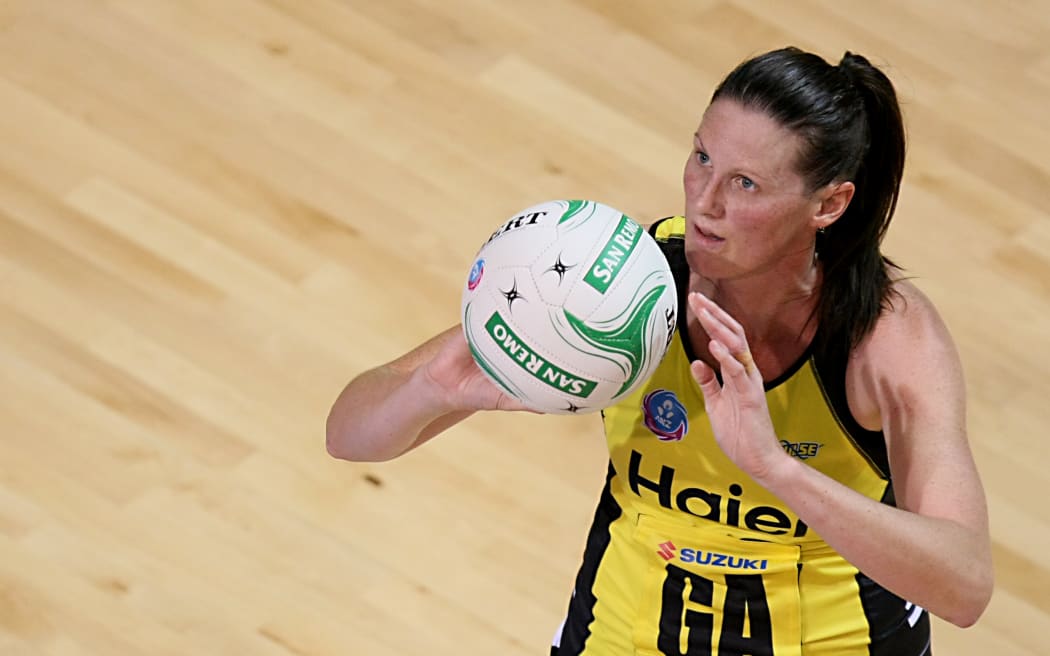
Donna Wilkins played netball and basketball for NZ. Photo: Dianne Manson
In 2012 the New Zealand women's Sevens team embarked on the first IRB women's world series, and now sit just behind netball when it comes to earnings.
Rugby star Portia Woodman-Wickliffe played netball for the Northern Mystics but when she heard that Sevens was going to make its Olympic debut, went along to a trial in 2012 and hasn't looked back.
Wilkins' 12-year-old daughter plays every sport she can fit in.
"There's more opportunities now for a young girl growing up to not just play netball. When I was growing up that's what you did because everybody else was doing it, now you've got more choice."
Once the envy
New Zealand Netball Players' Association executive manager Steph Bond competed in the National Bank Cup, when some of the top players started to earn a living.
Bond then played in the first two seasons of the semi-professional ANZ Championship, which was a big turning point for the sport.
"We were probably the envy back then," Bond said.
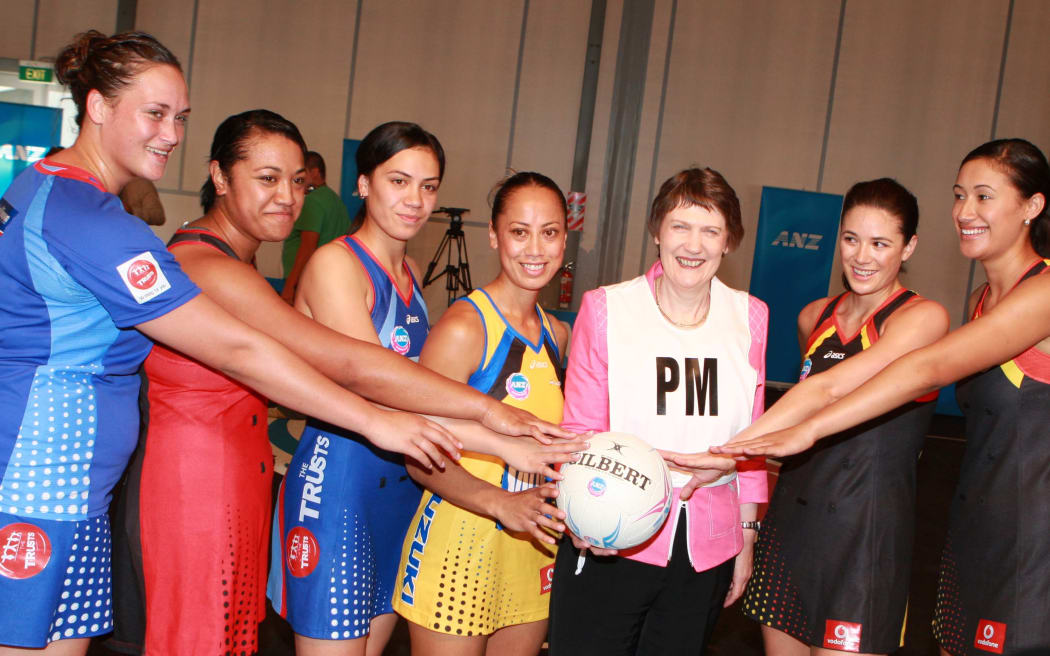
Prime Minister Helen Clark and players at the launch of the new ANZ Netball Championship. Auckland, March 2008. Photo: James Ensing-Trussell
"Playing in it was amazing, you literally were playing the best of the best every weekend and we were getting paid.
"There's no other trans-Tasman competition now across any other female sport where you had the best players in the world in one competition, battling it out week after week."
But New Zealand and Australia went their separate ways at the end of 2016, with Kiwi teams largely struggling against their Australian rivals.
"I think going back to just our own country has just taken something away from the game. It kind of made us unique really ... in all honesty losing that was probably the start of where we are today a little bit."
Since 2008 pay increases have been gradual.
"The minimum retainer back then was $12k but it's only grown to $26k for the ANZ Premiership, it's not a huge increase."
Does netball have to come to terms with the fact it won't be able to compete with some of these other sports?
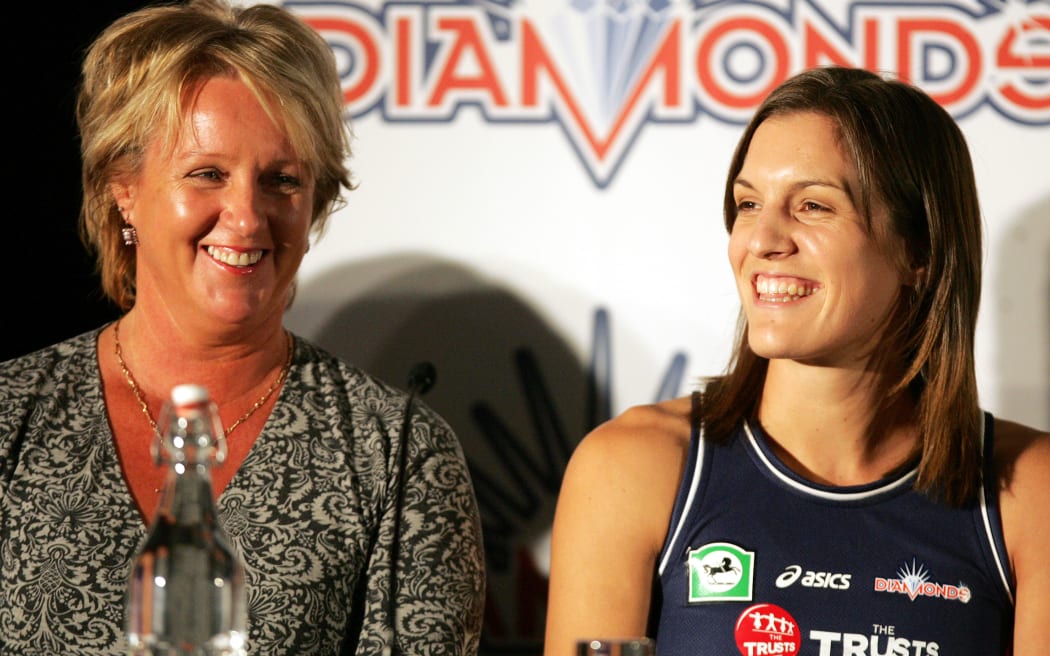
Diamond's coach Sue Hawkins (L) and Stephanie Bond (R) during The National Bank Cup 2007 Media Launch. Photo: Hannah Johnston
"The money that comes in through India in cricket is probably not something that any female sport can compete with in New Zealand.
"It's going to be really challenging and I think the next couple of years is going to be really critical around where netball positions itself."
The Silver Ferns disappointing fourth place finish at last year's World Cup, where Australia hoisted the trophy again, renewed calls to re-establish some trans-Tasman cross-over.
With its unlimited import policy Australia's Super Netball (SSN) competition attracts some of the best players in the world. However, New Zealand players rarely ply their trade in Australia, because it would make them ineligible for the Silver Ferns.
Global netball news platform, Netball Scoop managing editor Jenny Sinclair, who is based in Australia, also mourns the loss of the former trans-Tasman league.
"It was good for the sport as a whole and I think together we were much stronger, than we are apart. That's when we also saw international imports from England and Jamaica really start to come into it and netball kicked up a gear around the world," Sinclair said.
But she thinks it would be difficult for Netball New Zealand (NNZ) to push for club cross-over games between the respective competitions.
"To a certain extent that's setting up a bit of resentment here in Australia about you know 'we're not a training ground for New Zealand to develop its netball' and where are these girls going to fit that in."
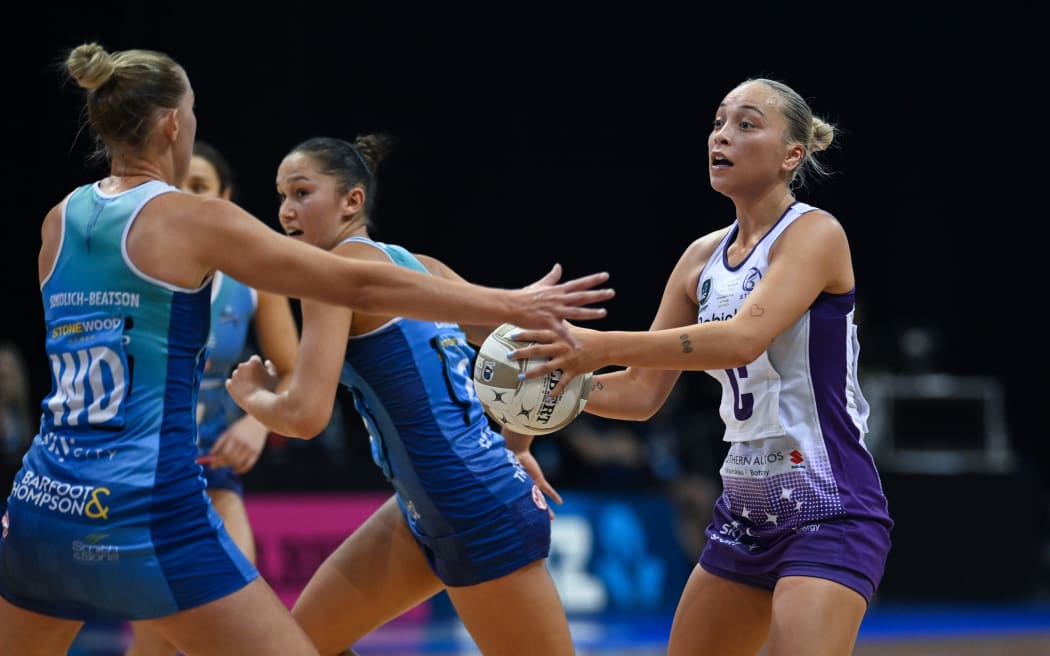
Mila Reuelu-Buchanan about to pass the ball during the ANZ Premiership Netball Grand Final 2023. Photo: Andrew Cornaga/www.photosport.nz
Half of the ANZ Premiership franchises are not able to stand on their own financially, with the Tactix, Stars, and Magic under control of Netball New Zealand.
NNZ chief executive Jennie Wyllie said they continually reviewed the league, including whether the ownership model could in future see franchises backed by private ownership.
"There's a number of options that we are looking at, whether that be team structure, partnership, or innovation in terms of our broadcast landscape. We also take a longer term view of what the competition might look like in five years for example, how do we ensure we remain relevant and engage our fans," Wyllie said.
Retaining talent and eyeballs
Netball in Australia faces even more competition in a crowded sports market.
Australian netballers got a recent pay rise but it's not much more than what New Zealand players get.
"In pure dollar terms there's just no way that netball is going to be able to compete long term with football and cricket codes, that's just a given so I think it's finding ways if you want to keep your players in the game, it's about making them feel valued and treated professionally," Sinclair said.
Sinclair said the SSN competition in Australia looked and felt professional and that was important to the players.
"It says that we're a women's sport, we're proud and we're here to stay, you know just having netball-specific stadiums and slick facilities is a good start and I think that does come across on the TV, to audiences that attend, and the players feel like they are being treated seriously."
There is a general consensus that New Zealand's ANZ Premiership is starting to feel pedestrian and that could be reflected in dwindling crowds.
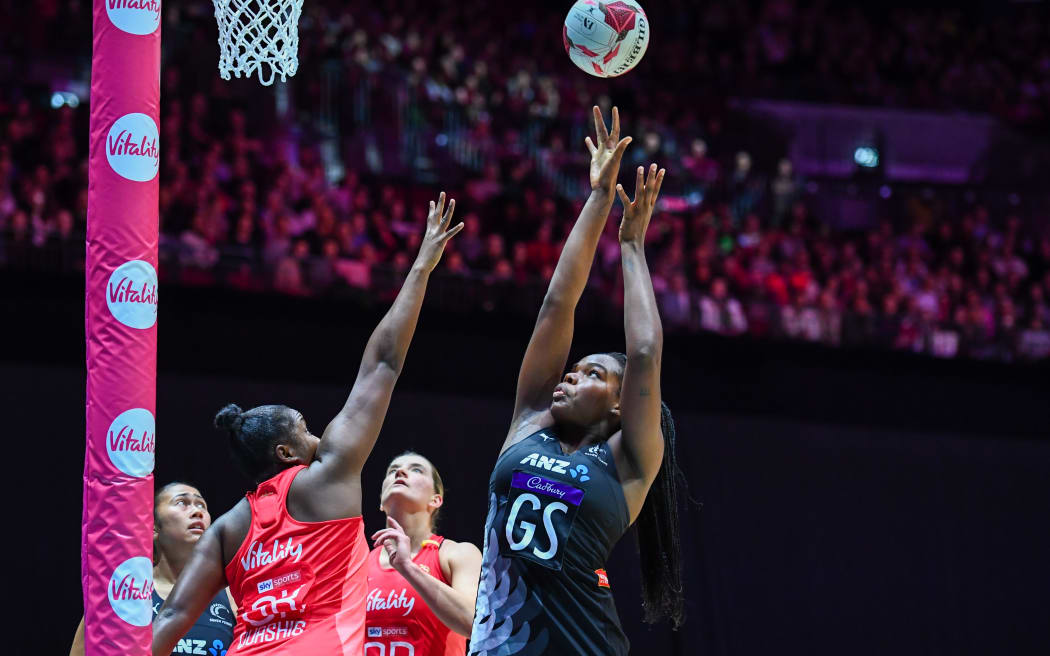
Grace Nweke Photo: Photosport
While Australia's competition is struggling to break even, crowds and viewership have been on an upward trend for a while.
Sinclair believed marketing was a big make-or-break factor when the SSN competition started in 2017.
"The advance of social media and digital platforms means that women's sport, which traditionally don't have a lot of dollars to spend, can find alternative ways of marketing themselves."
But she said players had to help drive that.
"Grace Nweke for example is one of your biggest names and she's got under 9000 followers on Instagram.
"Look at someone like England international Helen Housby who has got close to 200,000 followers, people are just drawn to the sort of stuff she posts. Having a bigger presence across some of the platforms has really helped our game and in turn our players.
"Players have got to buy into that and help sell the game too and that's perhaps where some media training comes in."
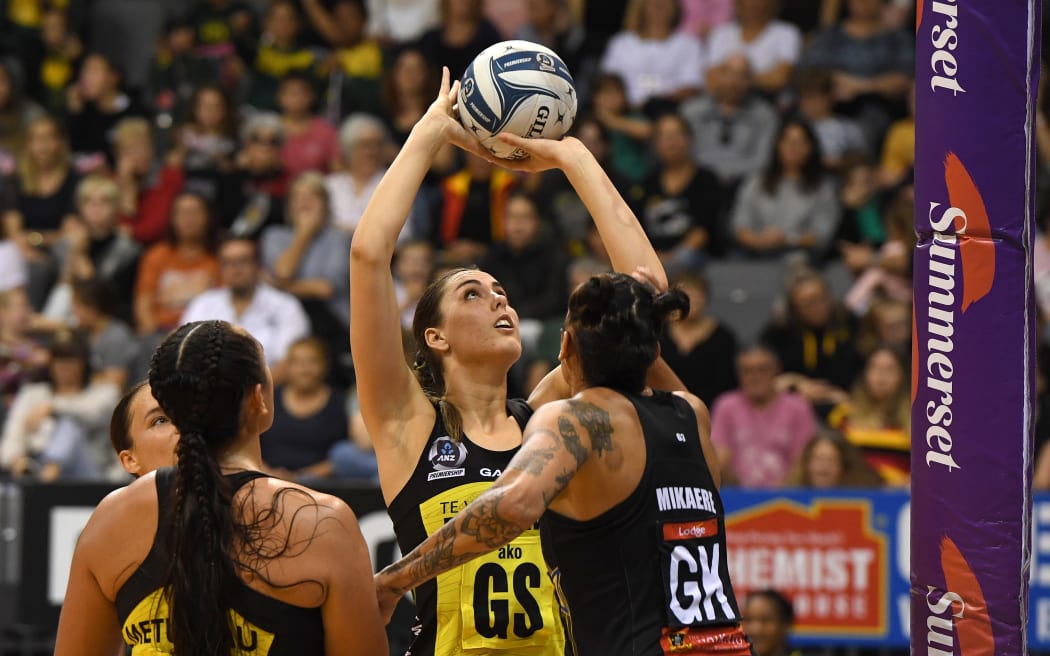
Amelia Walmsley of the Pulse. Photo: PHOTOSPORT
Sinclair said game day experience was also important.
"Here in Perth there's rarely less than 10,000 at a game. It's packed out in a sea of green, there's pop-up activities for kids, the DJ music's pumping, the adults can have a drink while the kids are entertained.
"We're selling against men's codes, we're selling against other women's codes so what is it that's going to make those differences and for many people they want excitement and wow factor. And it's not just catering to little girls."
Sinclair said New Zealand's policy of just one import per team was probably costing the league.
"These import players create a whole new level of interest, particularly if you ping some of your marketing around them. They all have such unique stories and you can sell those stories."
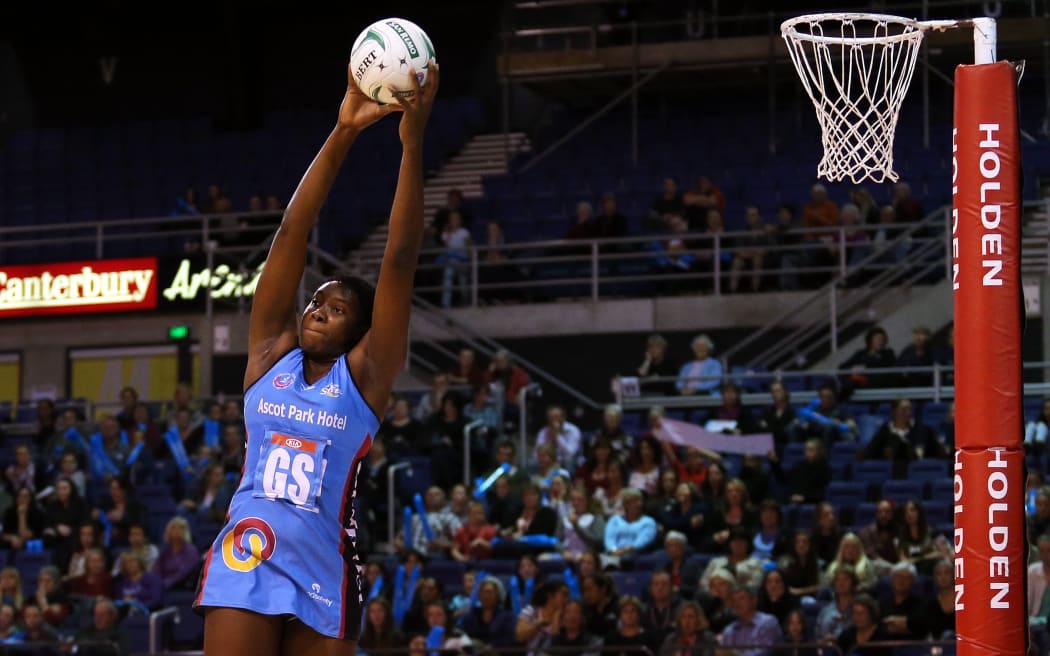
NZ franchises used to attract some of the best import players like Jamaican star Jhaniele Fowler. Photo: Photosport
Can netball get a piece of the pie?
New Zealander Shirley Hooper is the vice president of World Netball.
She said the rise in profile of other female sports could be seen as a threat when they had deeper pockets but World Netball saw it more as an opportunity.
"We believe as more viewers, broadcasters, and sponsors start to appreciate women's sport that that rising tide of interest, particularly commercial interest, will lift the whole market up and we'll be able to get our share in that," Hooper said.
"Don't get me wrong, if we had a wealthy men's sport covered by a lucrative deal out of India or rugby deals, that would be fantastic but we also have to be realistic about the market we're in and we think we are learning more about how to fight harder for our share of that."
Hooper said netball, which is played by over 20 million people across more than 80 countries, had a strong foothold.
"I think our biggest strength is we have a massively strong female participation base globally and one that a lot of those male sports envy and look at and try and replicate. We need to continue focussing on how we build on that and commercialise our sport and keep that momentum going."
Hooper said last year's Netball World Cup was by far the most successful sponsorship, broadcast, and digital reach programme they ever had, despite going head to head with the FIFA Women's World Cup.
"Actually they went head to head with us and we're not going to change what the women's football world cup does. It would be great to think that we might all work in a level playing field but that's not the reality."
In Part III Bridget Tunnicliffe looks at what next for netball - the Olympics, rule changes, or a return to free-to-air TV?

